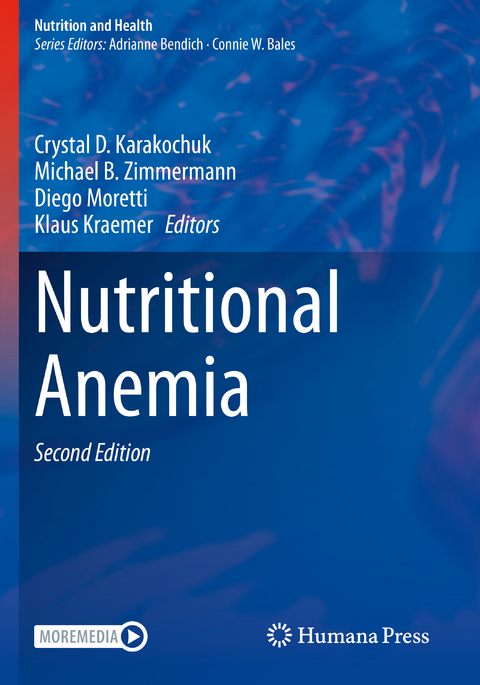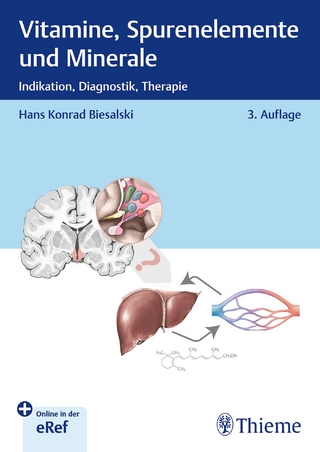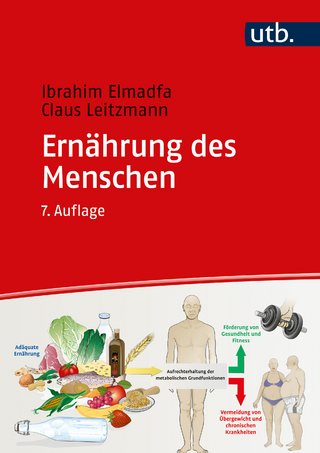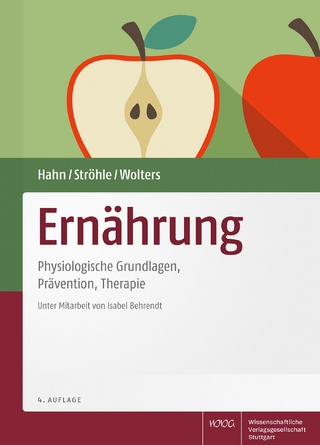
Nutritional Anemia
Springer International Publishing (Verlag)
978-3-031-14523-0 (ISBN)
Understanding the causes of anemia is critical to inform appropriate strategies to prevent and treat anemia, particularly to reduce the risk of anemia and the burden of disease. The strength of this book lies in its cross-disciplinary nature. This publication summarizes the current state of evidence on the multifactorial causes of anemia, with a specific focus on nutritional anemia. The chapter authors are leading experts in nutrition and global health. The introductory chapters provide an overview of the global burden of anemia prevalence, the economic implications and functional consequences of anemia, and the significance of these factors to guide policy and programs. Subsequent chapters provide current evidence on iron and other micronutrient metabolism and homeostasis in regards to anemia, the multifactorial contributors to anemia (e.g. infection and genetics), and the interactions between nutrients that may contribute to anemia. The summarizing chapters detail program and policy approaches to treat, prevent and reduce anemia in the global context.
Nutritional Anemia is a comprehensive resource for those involved in global health and nutrition policy, strategy, programming, or research, and serves as a guide for how government, NGO, and international agencies can effectively treat, prevent and reduce anemia globally.
Dr. Crystal D. Karakochuk
Assistant Professor, Human NutritionThe University of British ColumbiaVancouver, BC, Canada
Dr. Crystal Karakochuk is an Assistant Professor in Human Nutrition at the University of British Columbia, and an Investigator in Healthy Starts at the BC Children's Hospital, Vancouver, Canada. Dr. Karakochuk's research focus is micronutrients and human health. She evaluates programs and policies for anemia prevention and treatment, and the risk-benefit of micronutrient interventions in children and women.
Dr. Michael B. Zimmermann
Professor, Human NutritionETH Zurich, Departement of Health Sciences and TechnologyInstitute of Food Nutrition and HealthLaboratory of Human Nutrition
Zurich, Switzerland
Dr. Michael Zimmermann is a Professor in the Department of Human Nutrition at the Swiss Federal Institute of Technology in Zurich (ETHZ). His research focus is nutrition and metabolism, including the effects of micronutrient deficiencies on thyroid function, minerals and trace elements, particularly iron, iodine, calcium and zinc, and iron metabolism.
Dr. Diego Moretti
ETH Zürich, Department of Health Sciences and TechnologyInstitute of Food Nutrition and HealthLaboratory of Human NutritionSwiss Distance University of Applied Sciences (FFHS/SUPSI)Regensdorf, Switzerland
Dr. Diego Moretti is Head of Nutrition Research at the Swiss Distance University of Applied Sciences (FFHS) and the University of Applied Sciences of South Switzerland (SUPSI). His research interests focus on mineral nutrition, iron metabolism, fortification and bio-fortification of foods.
Dr. Klaus Kraemer
Adjunct Associate Professor, International HealthJohns Hopkins Bloomberg School of Public Health Managing Director, Sight and Life Foundation
Basel, Switzerland
Dr. Klaus Kraemer is Managing Director of Sight and Life Foundation, Basel, Switzerland, and Adjunct Associate Professor in the Department of International Health of Johns Hopkins Bloomberg School of Public Health, Baltimore, USA. His research interests cover micronutrients and food systems to develop sustainable and affordable malnutrition solutions for vulnerable populations im low- and middle-income countries.
Worldwide Prevalence and Progress in Anemia Reduction.- The Economics of Addressing Nutritional Anemia.- Iron Biology: Metabolism and Homeostasis.- Laboratory Methods for Measurement of Anemia and Iron Status.- Interpretation of Biomarkers and Diagnosis of Nutritional Status.- Anemia and Iron Deficiency in Disease.- Nutritional Anemia in Special Population Groups (children, elderly, pregnancy/lactation, vegetarians).- Sources of Iron Intake: Diet, Supplemental, Environmental.- Bioavailability: Inhibitors and Enhancers of Iron Absorption.- Food Fortification with Iron: Policy and Considerations.- Genetic Hemoglobinopathies and their Contribution to Anemia.- Role of B-vitamins in Nutritional Anemia.- Oxidative Stress and Vitamin E in Anemia.- Vitamin D and Hepcidin in Nutritional Anemia.- Infection and Inflammation in the Etiology and Assessment of Iron Deficiency of Anemia.- Iron Infection and the Immune System.- Anemia in Sever Undernutrition (malnutrition).- Interactions between Ironand other Minerals in the Etiology of Anemia.- Iron and the Gut Microbiota.- An Overview of the Functional Significance of Iron Deficiency (Cognitive, Behavioral).- Designing Effective Programs for Anemia Prevention, Treatment, and Reduction.- Market-based Approaches for Anemia Prevention, Treatment, and Reduction.- Safety of Interventions to Reduce Nutritional Anemia.- Novel Approaches to Iron Supplementation.- Food-based Approaches to Combating Iron Deficiency.- Conclusions and Research Agenda.
| Erscheinungsdatum | 17.12.2023 |
|---|---|
| Reihe/Serie | Nutrition and Health |
| Zusatzinfo | IX, 382 p. 48 illus., 38 illus. in color. |
| Verlagsort | Cham |
| Sprache | englisch |
| Maße | 178 x 254 mm |
| Gewicht | 750 g |
| Themenwelt | Medizin / Pharmazie ► Gesundheitsfachberufe ► Diätassistenz / Ernährungsberatung |
| Medizin / Pharmazie ► Gesundheitswesen | |
| Medizin / Pharmazie ► Medizinische Fachgebiete | |
| Schlagworte | B-vitamins in Nutritional Anemia • Genetic Hemoglobinopathies • Iron and the Gut Microbiota • Iron Biology • Iron Deficiency • Vitamin A in Nutritional Anemia • Vitamin E in Nutritional Anemia |
| ISBN-10 | 3-031-14523-2 / 3031145232 |
| ISBN-13 | 978-3-031-14523-0 / 9783031145230 |
| Zustand | Neuware |
| Haben Sie eine Frage zum Produkt? |
aus dem Bereich


